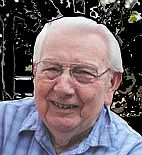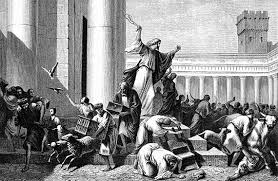 April 20, 2016 (Wednesday)
April 20, 2016 (Wednesday)
We will resume our study of the gospel of Mark in chapter 11 tonight at Bethel Baptist Church, Ingleside.
Monday after Palm Sunday was a significant day for Jesus and His disciples. On the way to Jerusalem, he cursed a fig tree because it displayed leaves without fruit. This was not a fit of anger, but an opportunity to teach his followers about the power of prayer. They would return to the tree and find it dead because it had been cursed. This was a display of the power of God, a power available to the disciples.
 Upon entering the city of Jerusalem, Jesus went into the Temple area that had become a marketplace filled with animals and money changers, all hawking their wares. The stench of animals pervaded that holy place. Jesus drove out the animals, overturned the tables of the money changers, and drove all of them out of the Temple, saying, “It is written, ‘My house shall be called a house of prayer,’ but you have made it a den of thieves.”
Upon entering the city of Jerusalem, Jesus went into the Temple area that had become a marketplace filled with animals and money changers, all hawking their wares. The stench of animals pervaded that holy place. Jesus drove out the animals, overturned the tables of the money changers, and drove all of them out of the Temple, saying, “It is written, ‘My house shall be called a house of prayer,’ but you have made it a den of thieves.”
This was not only an expression of horror over the commercialization of a holy place, but was a direct challenge to the religious leaders, without whose permission such activities would not have taken place. On the following day they would all meet face to face and have a lively exchange resulting in the leaders vowing to put Jesus to death.
“The moral and religious depravity of the religious leaders prompted Jesus’ actions. Both the cursing of the fig tree and the cleansing of the temple were prophetic sign acts that foretold the impending judgment upon the nation of Israel that would occur with the destruction of Jerusalem (fulfilled in 70 AD).” (Mark A. Copeland, “Executable Outlines”).
Jesus reacted to the attitude of the leaders and their followers that God would keep his promises to them without their keeping their promises to Him. They failed to demonstrate to the world that God is holy and sovereign. They forgot that God held them responsible for their sin and hypocrisy.
